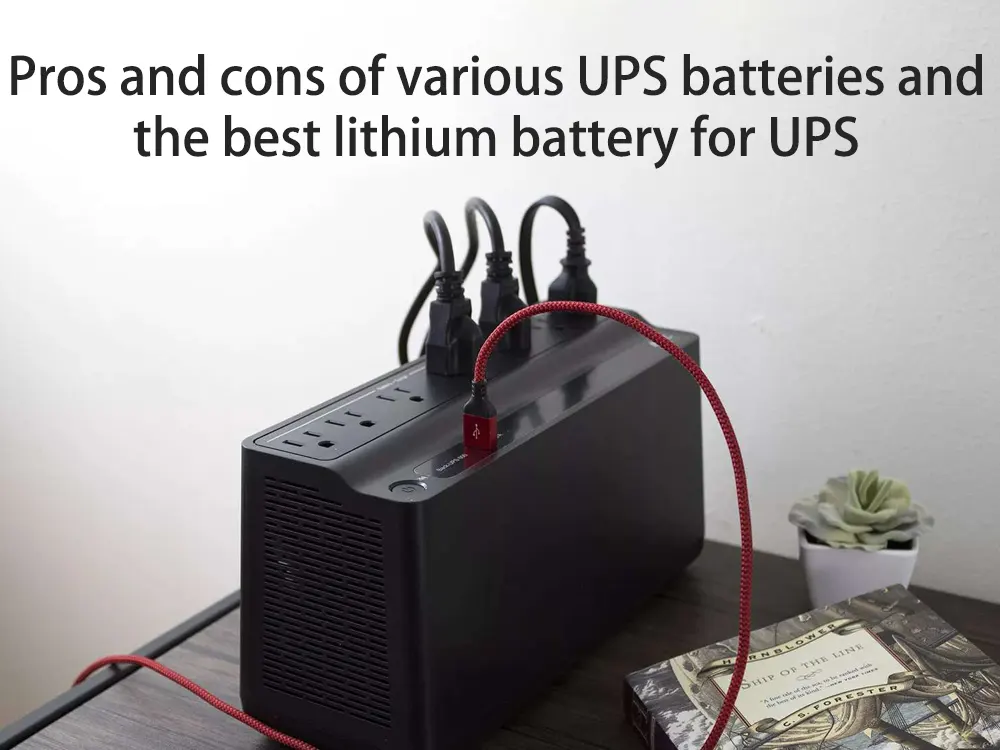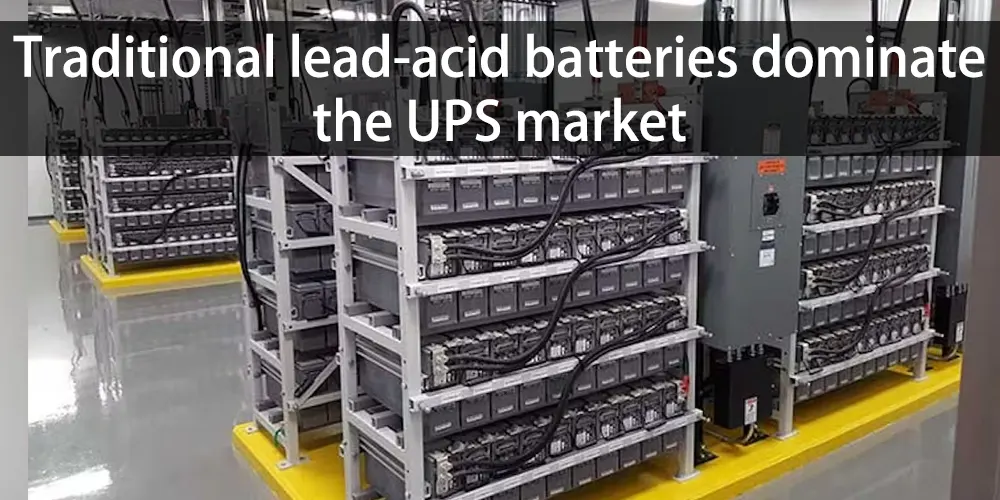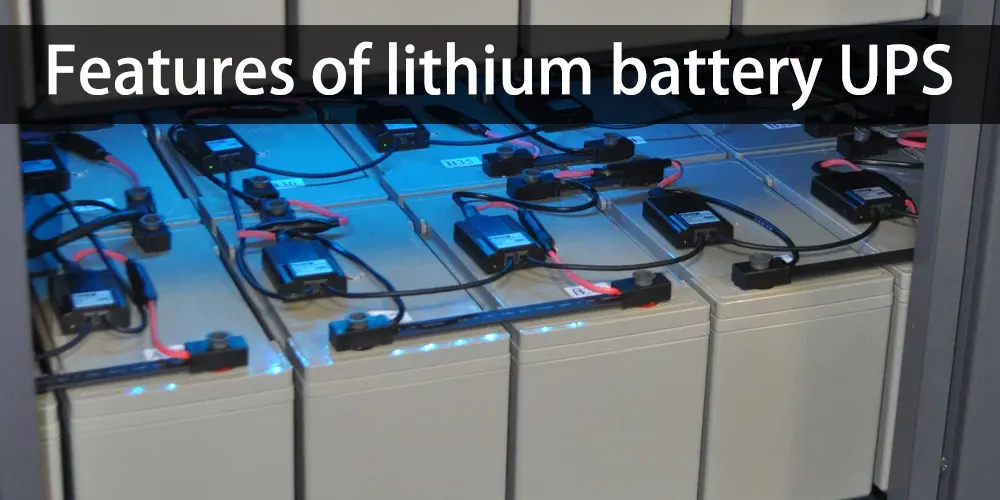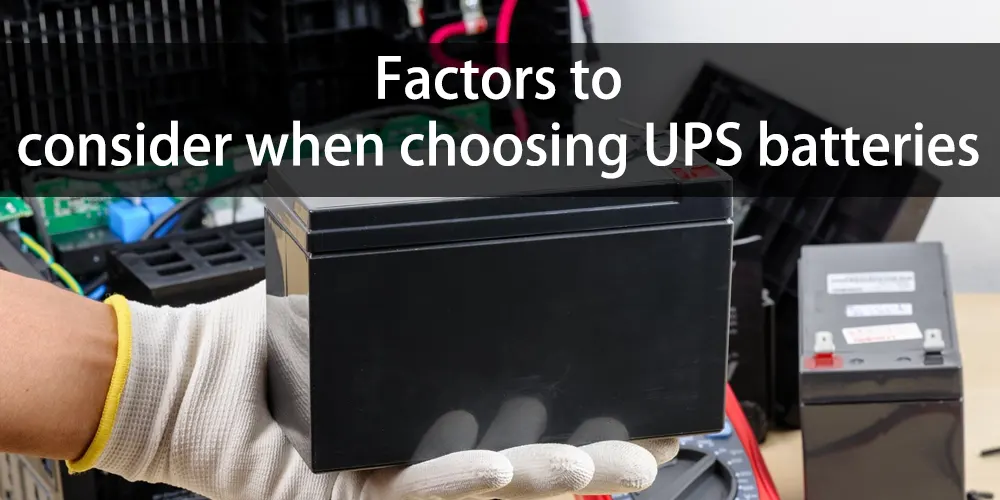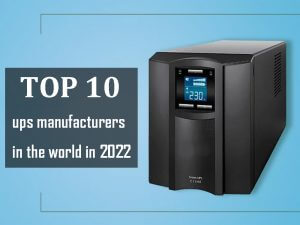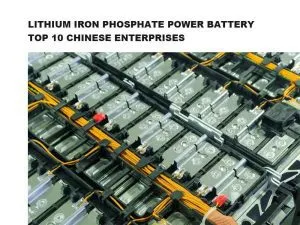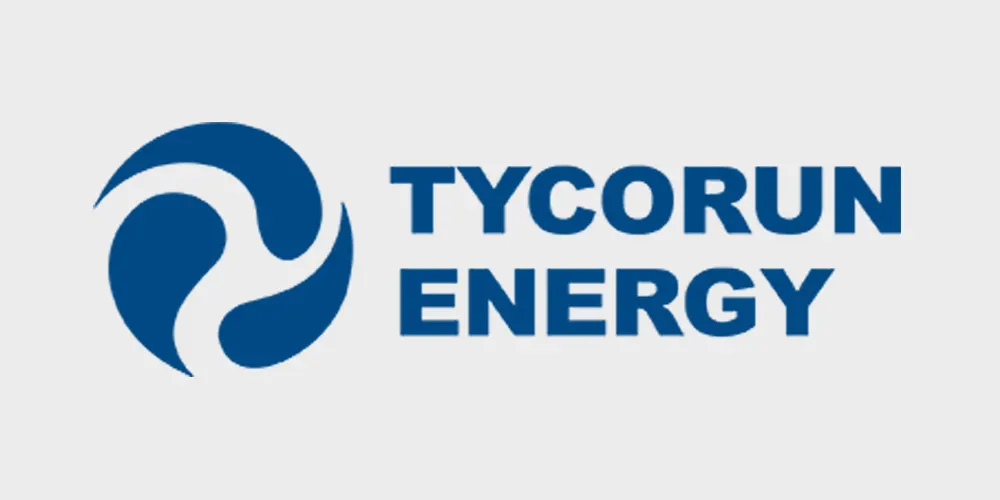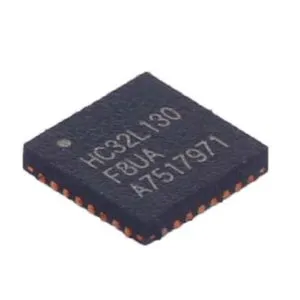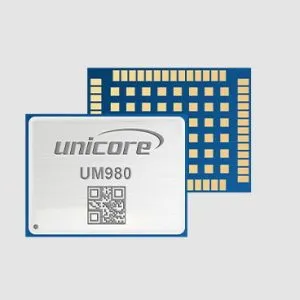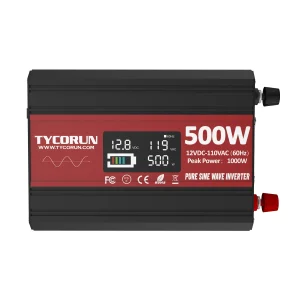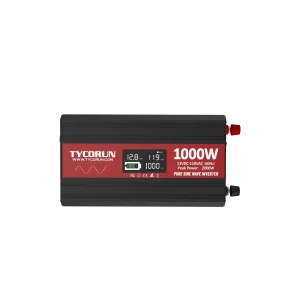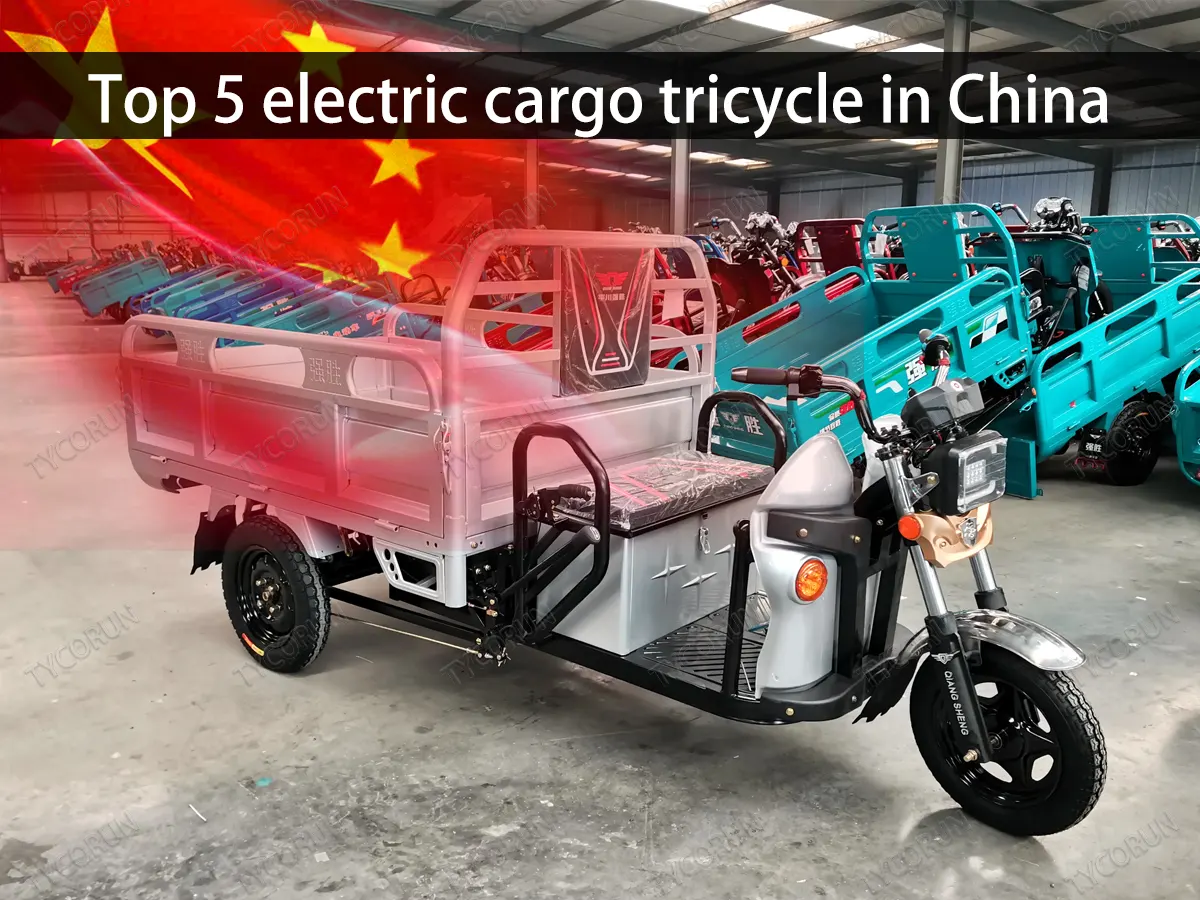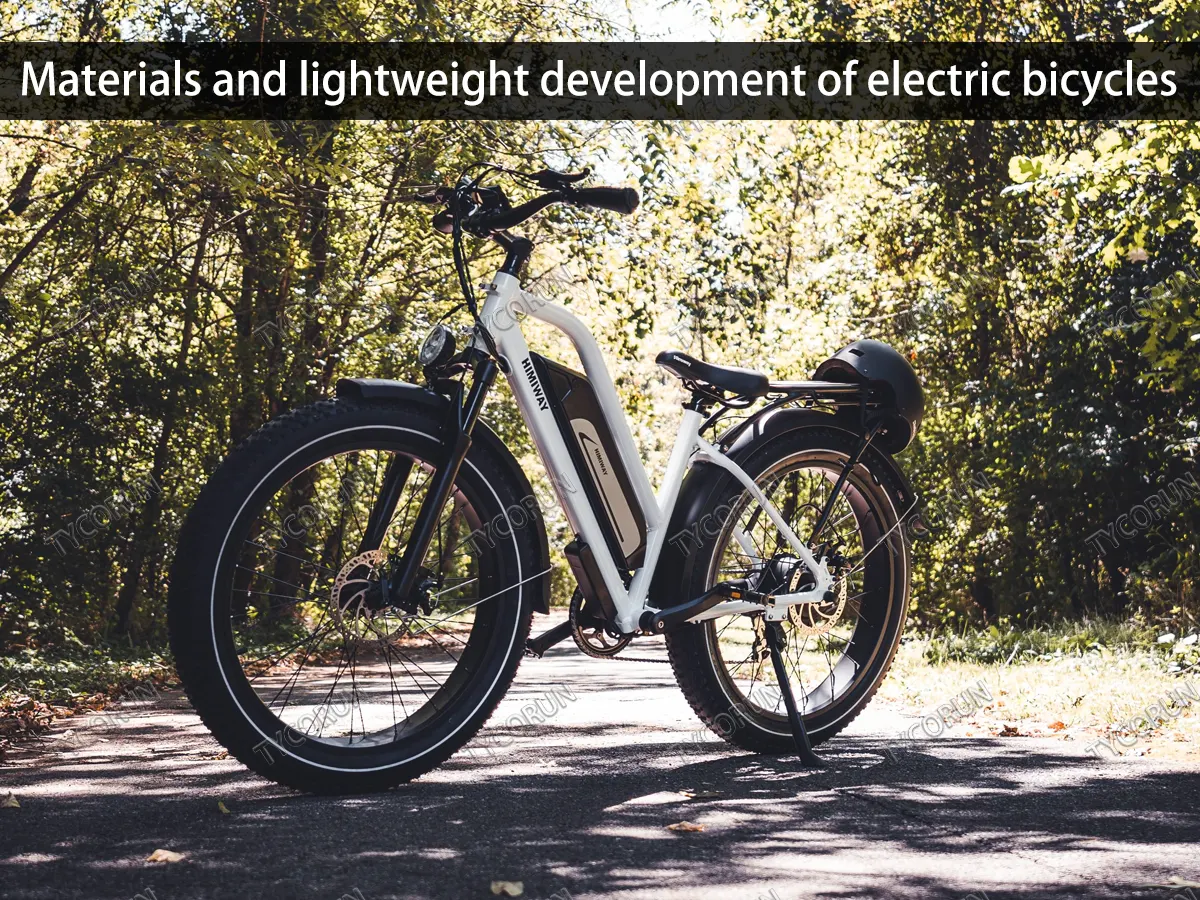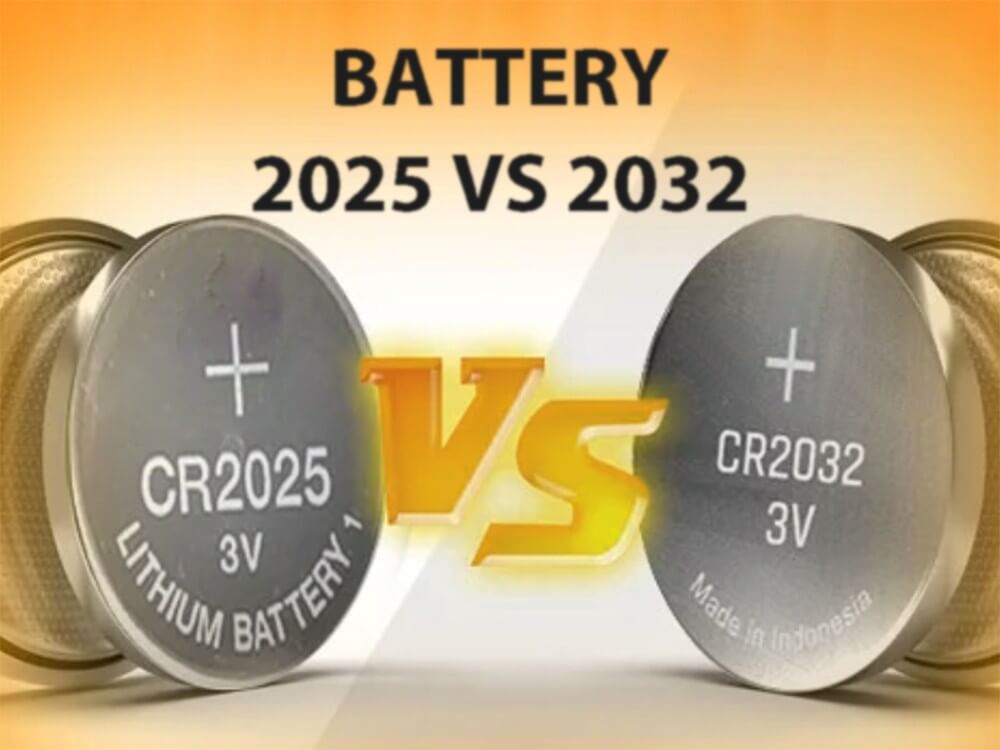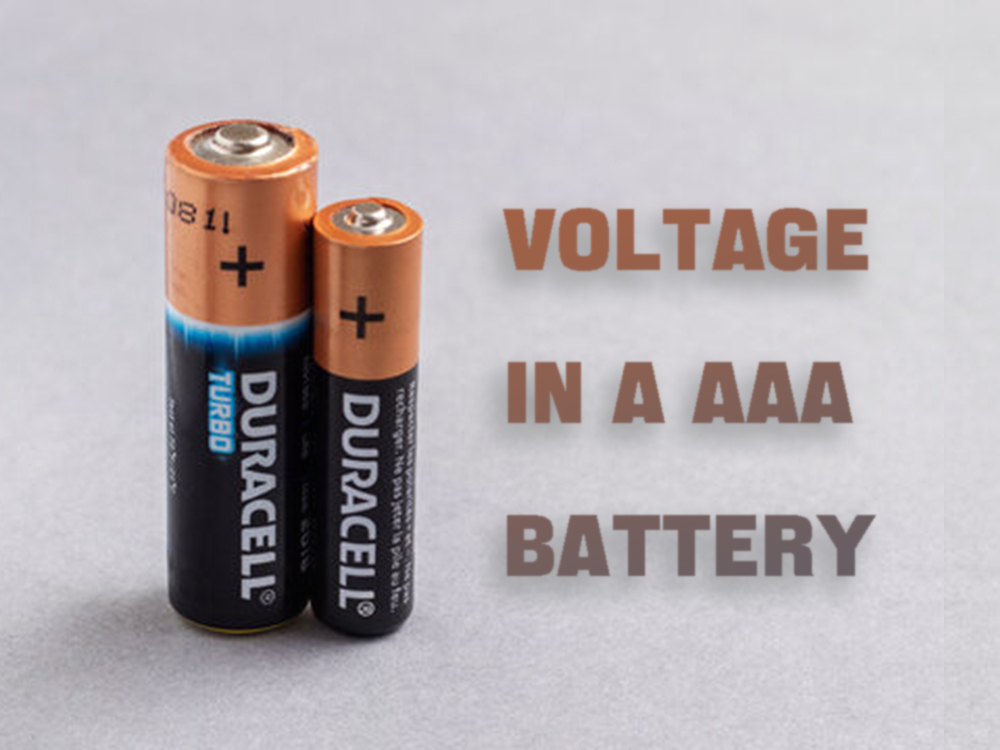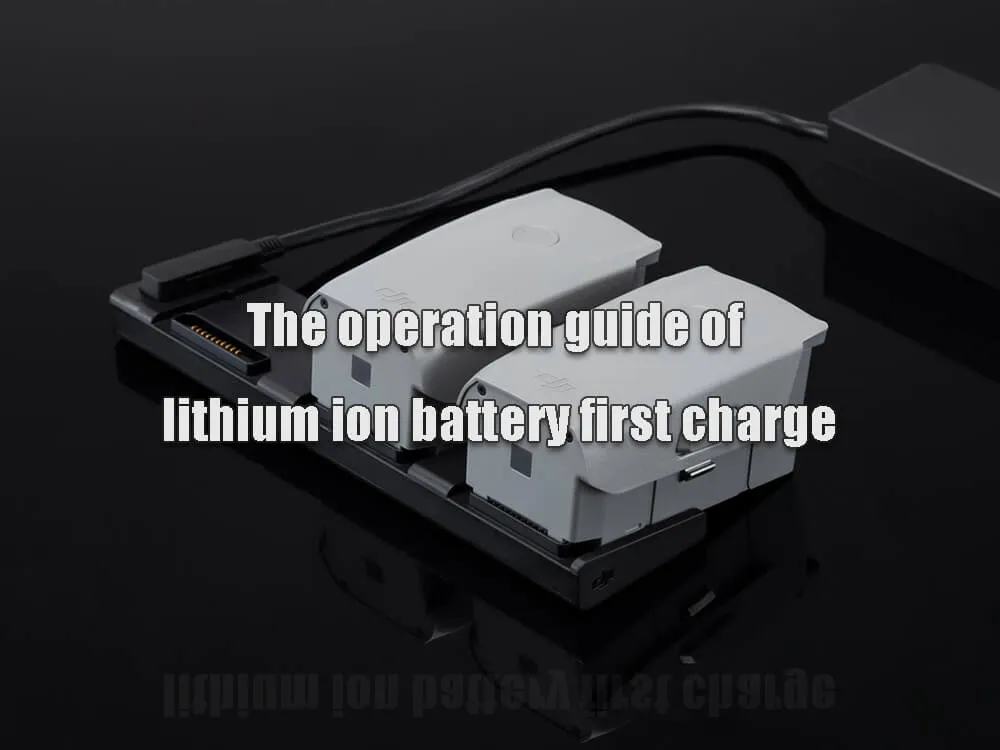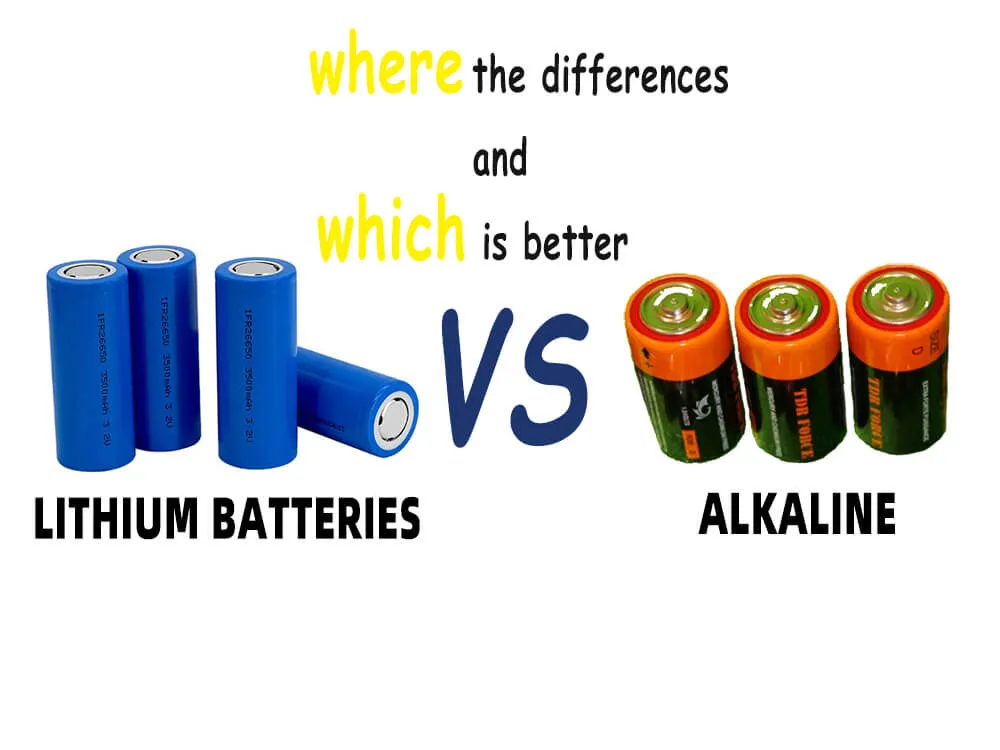Pros and cons of various UPS batteries and the best lithium battery for UPS

Selecting a UPS power source requires exploring the pros and cons of different battery technologies. Which one a user needs to choose has a direct impact on total cost of ownership (TCO), energy efficiency and charge rate.
Traditional lead-acid batteries dominate the UPS market
Traditional lead-acid batteries account for more than 90% of the UPS market. Due to their price advantage and stable safety, they are favored in the centralized procurement of UPS in data centers. However, people’s interest in lithium battery replacement lead acid technology has increased day by day in recent years.
That’s because lithium-ion batteries have a smaller footprint and excellent fast charging capabilities. In addition, lithium-ion batteries require low maintenance and have a long service life. However, they also require dedicated charging systems, battery management for safe operation, and are not easily recyclable.
Therefore, it is worth considering alternatives to traditional lead-acid and lithium-ion batteries, such as thin-plate pure lead (TPPL) batteries. The technology offers similar performance advantages to lithium-ion batteries, with higher energy efficiency than traditional AGM batteries.
The rise of lithium-ion battery technology
The growth of the electric vehicle market has led to the rapid development of lithium-ion battery technology. Lithium-ion batteries have high charge acceptance and fast charging capabilities. This feature is very important in areas with frequent utility power outages. Lithium-ion batteries use a battery management system (BMS) to control the efficiency and safety of charging.
Charging speed, energy efficiency, and battery life are all factors that make lithium-ion batteries attractive for UPS power applications. These batteries require low maintenance due to the built-in diagnostics of the BMS. Lithium-ion batteries are smaller and lighter than lead-acid batteries. This allows data centers to recover floor space from their UPS power and use it for data center equipment.
Lithium battery UPS features mainly include the following aspects:
High energy density: The energy density of lithium batteries is much higher than that of traditional lead-acid batteries, which can provide longer backup power at the same capacity.
High efficiency: The charging and discharging efficiency of UPS lithium battery uninterruptible power supply is very high, which can minimize the loss of converting electric energy into electric power.
Long life: Lithium batteries have a relatively long life. Under reasonable use, they can last for more than a few years.
Small size: Due to the high energy density of lithium batteries, the volume of the same capacity is much smaller than that of traditional UPS equipment, which can save space.
Lightweight: Compared with traditional UPS equipment, lithium battery UPS is lighter in weight and easy to install and maintain.
High reliability: Lithium battery UPS has high stability and reliability. In the event of power fluctuations, grid failures, etc., it can quickly provide safe and reliable backup power for the equipment to ensure the normal operation of the equipment.
Green and environmental protection: Lithium battery UPS will not produce harmful substances during charging and discharging, and will not pollute the environment. It is a relatively environmentally friendly backup power supply equipment.
What type of lithium battery does lithium battery UPS use?
Lithium battery UPS, most manufacturers use lithium iron phosphate battery solution. Lithium iron phosphate battery is safe and stable, has high energy density, small size, and small footprint, the design life is generally more than 5-8 years, which can save battery replacement and maintenance costs.
The use of lithium batteries in UPS is a new trend. Lithium iron phosphate batteries are a type of lithium batteries. There are UPS power supplies with built-in lithium iron phosphate batteries, and UPS uninterruptible power supplies with external lithium batteries. Lithium iron phosphate battery is famous for its own safety and stability, high cycle life, long loading time when fully charged, and high cost performance, so lithium iron phosphate battery is the best lithium battery for UPS.
Lithium iron phosphate batteries are an important component of UPS systems, and more and more UPS systems use lithium batteries. Lithium battery UPS can meet the needs of different application scenarios, and is widely used in government agencies, military, communications, electric power, transportation, radio and television, finance, taxation, medical care, education, scientific research, enterprises, petrochemicals, industrial and mining and other fields.
The life expectancy of a typical UPS system in a data center is typically 10-15 years. Lead-acid batteries last 3-6 years, while lithium batteries last up to 10 years or even longer. By 2025, lithium battery solution will account for 40% of the UPS market for data center applications.
Thin plate pure lead battery alternative
Thin plate pure lead (TPPL) batteries are an advanced form of lead-acid batteries that offer advantages over AGM batteries. First of all, TPPL batteries have very good fast charging capabilities. Depending on the charging current and voltage parameters used, they can be fully charged in 2.5 hours.
AGM batteries have a baseline life of 5 to 6 years, while TPPL batteries are designed to last more than 12 years. Although TPPL battery technology is not as compact as Li-ion batteries, high energy density solutions are possible.
Factors to consider when choosing UPS batteries
Fast charging, low maintenance cost and long service life are important factors in choosing UPS batteries. But other factors cannot be ignored.
Safe transport
Shipping restrictions for lithium-ion batteries do not apply to lead-acid technology. TPPL batteries are approved as non-dangerous goods and can be transported by land, sea and air without restriction. But UN3480 lithium-ion batteries must be shipped in partial state of charge (PSOC). They must comply with packing regulations and are restricted to dedicated cargo airlines.
Recycling
Lead-acid batteries have established commercial recycling pathways. 95% of the batteries are recyclable and have an inherent end-of-life value. Lithium-ion batteries can be 100% recycled, but commercial recycling options are lacking. Depending on the chemistry, the end user may have to pay for battery disposal at end of life. This is sure to change in the future as the lithium-ion market continues to grow.
Total cost of ownership
Ultimately, the total cost of ownership (TCO) is the primary motivator for choosing a UPS with its battery technology. Initial investment, maintenance and operating costs, and useful life all play an important role in determining the TCO.


